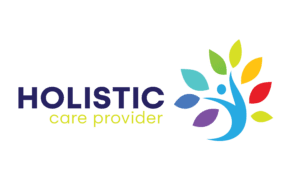Conflict Resolution Strategies for Disability Support Workers
In the dynamic and often demanding field of disability support work, conflict is inevitable. Whether it stems from misunderstandings, differing perspectives, or challenging behaviours, conflict has the potential to disrupt relationships, hinder care delivery, and impact the well-being of individuals with disabilities. However, by equipping themselves with effective conflict resolution strategies, disability support workers can navigate conflicts constructively, promote positive outcomes, and maintain a supportive and harmonious environment for those they serve. This article explores the importance of conflict resolution in disability support work and offers practical strategies for resolving conflicts effectively.
Understanding Conflict in Disability Support Work: Conflict in disability support work can arise in various contexts, including disagreements between support workers, conflicts between individuals with disabilities, and challenges in communication or decision-making. Conflict may be triggered by differences in values, expectations, communication styles, or perceptions of power and control. Left unresolved, conflict can escalate, erode trust, and compromise the quality of care and support provided to individuals with disabilities.
The Importance of Effective Conflict Resolution: Effective conflict resolution is essential for maintaining positive relationships, promoting teamwork, and ensuring the well-being of individuals with disabilities. By addressing conflicts promptly and constructively, disability support workers can prevent escalation, build trust, and foster a culture of open communication and collaboration within their teams and support networks. Effective conflict resolution also empowers individuals with disabilities to assert their autonomy, express their needs, and participate actively in decisions about their care and support.
Key Principles of Conflict Resolution
Successful conflict resolution relies on several key principles that guide the process towards a positive outcome:
- Active Listening: Actively listen to all parties involved in the conflict, allowing each person to express their thoughts, feelings, and perspectives without interruption. Demonstrate empathy and understanding by acknowledging their emotions and validating their experiences.
- Respect and Empathy: Treat all individuals involved in the conflict with respect, empathy, and dignity, regardless of their role or position. Foster a supportive and non-judgmental environment where everyone feels valued and heard.
- Clarification and Understanding: Seek clarification and understanding of the underlying issues and concerns contributing to the conflict. Ask open-ended questions, paraphrase key points, and summarise discussions to ensure that everyone has a clear understanding of the situation.
- Collaboration and Problem-Solving: Encourage collaboration and problem-solving by exploring potential solutions together with all parties involved. Brainstorm ideas, weigh the pros and cons of each option, and work towards finding mutually agreeable resolutions that address the needs and interests of everyone involved.
- Flexibility and Adaptability: Be flexible and adaptable in your approach to conflict resolution, recognising that each conflict is unique and may require different strategies for resolution. Be willing to consider alternative perspectives and solutions that may differ from your initial assumptions or preferences.
Practical Conflict Resolution Strategies
There are several practical strategies that disability support workers can employ to resolve conflicts effectively:
- Address Issues Promptly: Address conflicts promptly and directly, before they escalate and impact the well-being of individuals with disabilities. Encourage open communication and create opportunities for individuals to express their concerns and seek resolution.
- Establish Ground Rules: Establish ground rules for respectful communication and behaviour within your team or support network. Clearly define expectations for conduct, conflict resolution processes, and consequences for violations of established guidelines.
- Mediation and Facilitation: Consider engaging a neutral mediator or facilitator to help manage conflicts and facilitate constructive dialogue between parties. Mediators can help defuse tension, clarify misunderstandings, and guide the parties towards mutually acceptable solutions.
- Use “I” Statements: Encourage individuals involved in the conflict to use “I” statements to express their feelings, needs, and concerns without blaming or accusing others. “I” statements focus on personal experiences and emotions, fostering empathy and understanding between parties.
- Find Common Ground: Identify areas of common ground or shared interests that can serve as a foundation for collaboration and resolution. Focus on finding win-win solutions that address the needs and interests of all parties involved.
- Seek Supervision and Support: Seek supervision and support from experienced professionals or supervisors when faced with complex or challenging conflicts. Consult with colleagues, mentors, or supervisors for guidance, feedback, and assistance in navigating difficult situations.
- Document and Follow Up: Document discussions, agreements, and action plans resulting from conflict resolution processes. Follow up regularly to ensure that agreed-upon solutions are implemented effectively and that any remaining issues are addressed promptly.
Conflict is an inevitable aspect of disability support work, but it need not be detrimental to the well-being of individuals with disabilities or the effectiveness of support services. By embracing principles of active listening, respect, collaboration, and problem-solving, disability support workers can navigate conflicts constructively, promote positive outcomes, and foster a culture of trust, understanding, and collaboration within their teams and support networks. As we strive to provide high-quality care and support to individuals with disabilities, let us recognise the importance of effective conflict resolution skills and commit to fostering environments where conflicts are addressed promptly, respectfully, and constructively.


Leave a Reply
Want to join the discussion?Feel free to contribute!